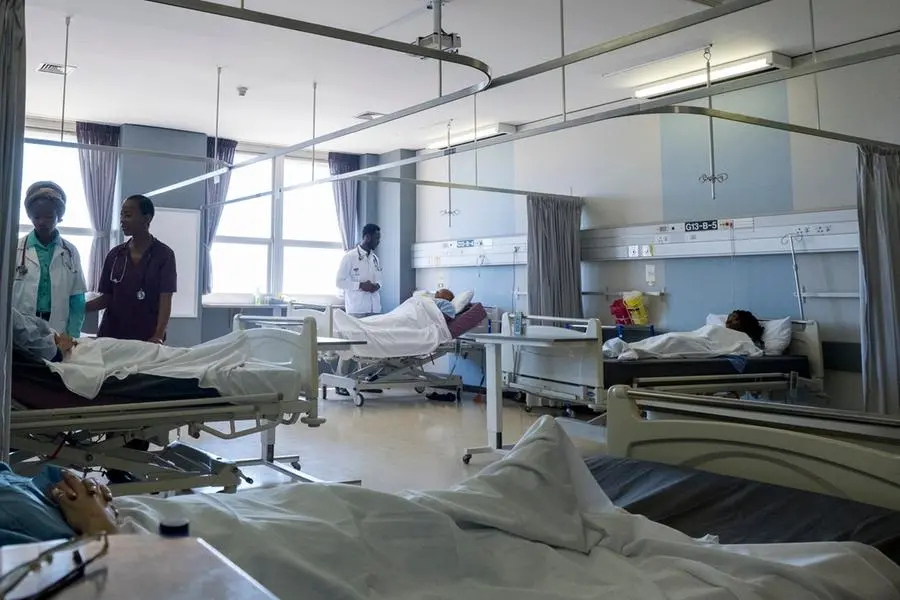PHOTO
Several public and private stakeholders in our healthcare sector were shocked to learn of Moderna’s decision to abandon its plans to establish a vaccine production facility in Kenya last month, raising repeated concerns about vaccine accessibility and production capacity in Africa.
“The indignation and frustration that many felt at reading these headlines places us among the thousands who, like most Africans, view Moderna’s decision as confusing and, once again, part of the trend of relegating Africans’ health and wellbeing to the whims of corporate interests,” shares Michael Mynhardt, CEO at MMH & Partners Africa.
He adds that prior to the COVID-19 pandemic, people living in Africa were aware that the continent was partly, and in some cases wholly reliant on external actors for its health and security: “Amidst the pandemic, however, this awareness turned into panic as we fell to the bottom of the list when it came to global efforts at vaccinating the public. Despite the rhetoric and overt gestures in support of Africa’s wellbeing by foreign entities, a simple problem remains unaddressed: how can Africans rely on non-African entities who chase short-term gains over long-term success?”
De-risking vaccine manufacturing in Africa
It is true that producing COVID vaccines today will unlikely generate profit over the short term. But that doesn’t mean that Africa cannot expedite the development of the vaccine manufacturing framework for the continent to prepare ourselves beyond the threat of COVID. Citizens living in countries across the African continent, in particular, cannot ignore this reality as the region remains rife with long-burning epidemics and populations highly susceptible to infections (both new and known).
“It is at this point where that fiery indignation and frustration at Moderna’s decision needs to be tempered; trepidation surrounding demand for your product is natural, and without demand, the process is unsustainable. Treating Moderna’s decision to withdraw as an immoral act once again makes us victims of the hyperbolic media cycle, where no nuance exists and outrage dominates. We may not like Moderna’s decision, but they are far from the only actors involved in their decision to withdraw from the continent. The risks involved in setting up vaccine production on the continent are, realistically speaking, quite substantial. However, they are not insurmountable,” concludes Mynhardt.
Trust & commitment between stakeholders is key
De-risking a business venture requires trust and commitment. In this case, lining up buyers ahead of operations is crucial. Vaccines and medication are unlike other goods in that they are essential to a country’s security – as such, governments on the continent have a vested interest in having locked-down access to regional producers.
While the demand for COVID vaccines has cooled, the infrastructure required to meet the demand for vaccines and treatments will be needed to address Africa’s ongoing medical needs. COVID-19 vaccine maker BioNTech recently secured up to $145 million in funding from a global coalition against infectious diseases, to help build a production network in Africa for shots based on cutting-edge messenger-RNA (mRNA) technology. BioNTech and the Coalition for Epidemic Preparedness Innovations (CEPI) said in a joint statement that the financial support was part of an expanded partnership as the German biotech firm builds an mRNA vaccine factory site in Rwanda’s capital, Kigali.
While this offers a positive step in the right direction, local government’s commitment will ensure the offtake that will be required to get this – and any other venture – to the critical mass it needs to become sustainable. Policies by local lawmakers should clear the way for companies such as Moderna or BioNTech from fighting an uphill battle. Regional governments would be laying even stronger foundations for health security if the relevant regulations were also standardized across our borders. These developments will remain a critical undertaking towards achieving the Africa CDC’s goal of developing, producing, and supplying over 60% of the total vaccine doses required by Africa, in Africa, by 2040.
An environment which does not promote the sustainability of ventures cannot hold any pretenses of outrage when such ventures fail to launch. Yes, Moderna’s withdrawal hurts all Africans, as the need for vaccines and medications extends beyond that of COVID 19. However, we need to be aware of the leading role that governments and agencies can play in creating a more enabling environment for the successful development of this sector in the long term.




















